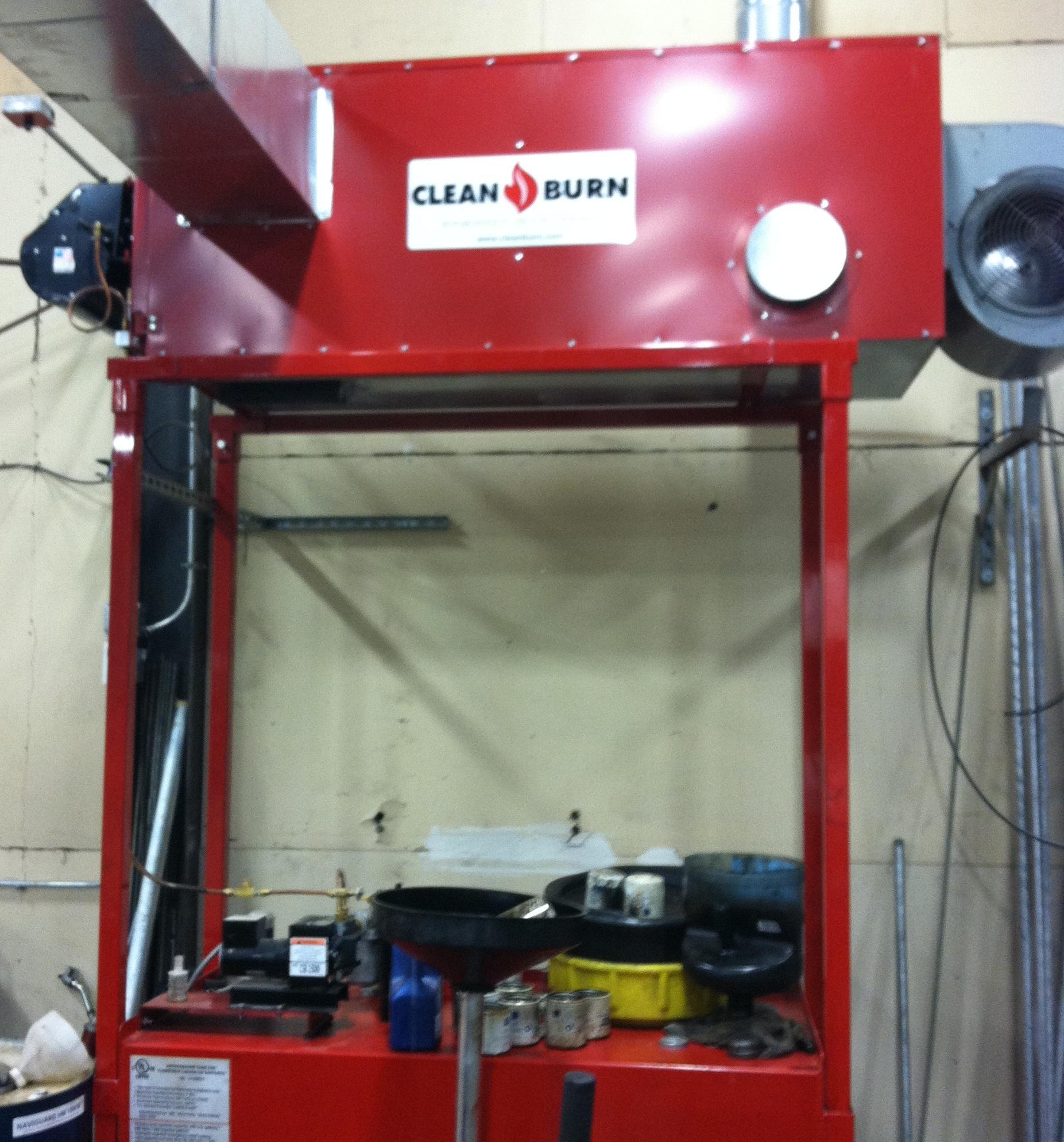Burning used engine oil and transmission fluid for auxiliary heating saves operating dollars and is extremely convenient, and TransAction Corporate Shuttles can attest to that. TransAction is a private company located in Woburn, MA that provides shuttle services and community transportation services. It has a fleet of approximately 45 vehicles, ranging from 13-passenger vans to 33-passenger buses. In 2011 management invested in a used oil furnace, which has a 275-gallon tank and takes used motor oil of any weight. The return on investment will end up being about three years.
TransAction installed the furnace in its maintenance garage in part because it didn’t require much ductwork. After the oil is extracted from the vehicle, it goes through a screening system the maintenance department staff created and then goes into the furnace tank.
The most important benefit of the furnace is the complete removal of heating oil costs for the maintenance garage, but a close second is convenience. The staff no longer has to worry about spilling while putting the used oil back in containers and getting it to a collection center or motor oil retailer. And of course, there are environmental benefits, like energy efficiency, waste reduction, and minimizing the pollution risks.



